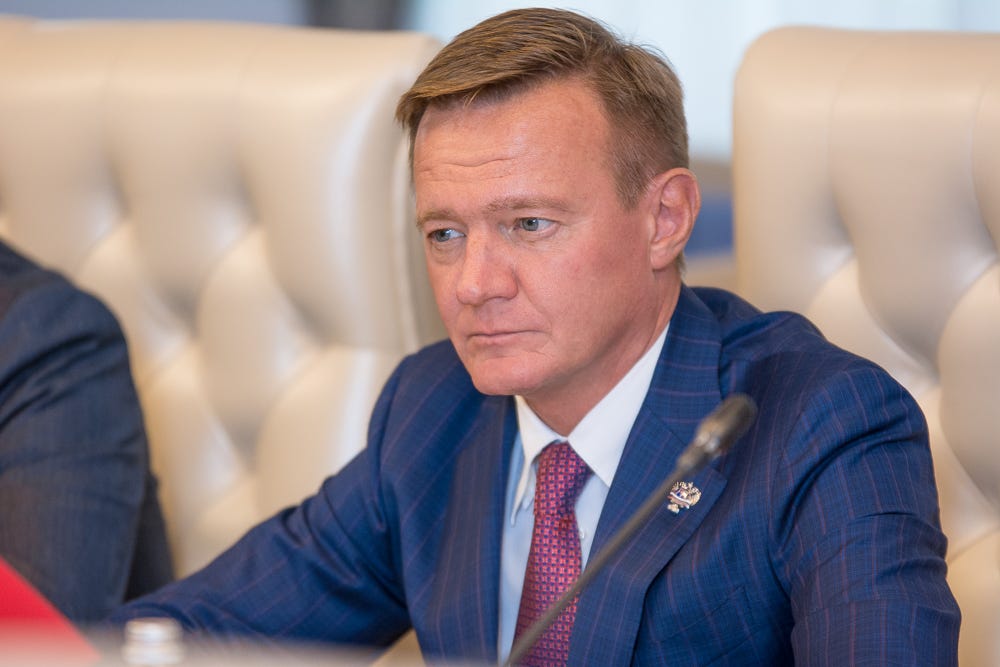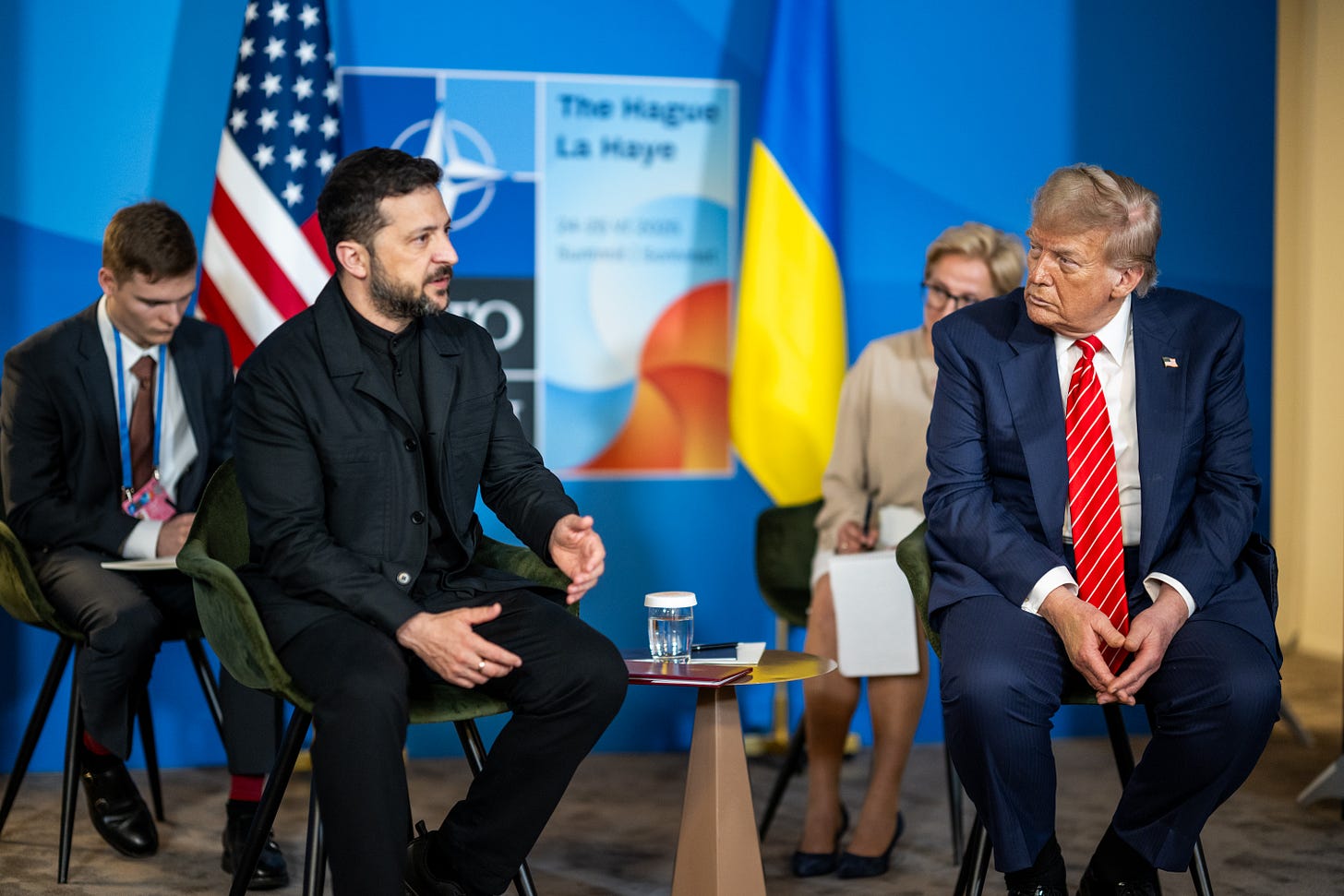Zelensky’s Moment of Truth: Rebooting Relations with Trump’s America
Zelensky faces a decisive moment as internal changes aim to rebuild Ukraine’s relationship with the U.S., recognizing the urgency of adapting to Trump’s leadership style.
Today marks 1,230 days since Russia's invasion of Ukraine, and despite a stalemate on the battlefields, the situation appears highly dynamic. It seems the proverbial pendulum is once again swinging in Kyiv's favor. Russia’s recently dismissed Minister of Transport (allegedly) committed suicide, Putin signed a decree allowing foreigners to enlist in the Russian army during mobilization periods, and there appears to be a noticeable improvement in Ukraine-U.S. relations, potentially signaling changes within the Ukrainian administration and its approach to its most crucial ally.
What might the death of Russia's Minister of Transport, just hours after his dismissal (or perhaps hours before?), have to do with the situation in Ukraine? In our view, it underscores the deepening decay afflicting this so-called "superpower." All signs point to Roman Vladimirovich Starovoyt either shooting himself or being shot due to his failed defense of Kursk against a Ukrainian attack a few months ago. At the same time, Putler clearly lacks volunteers willing to carry rifles and wage his criminal neo-imperialism on Ukrainian fronts, prompting him to relax nationality restrictions for soldiers eligible during mobilization. As history has repeatedly shown, mercenary soldiers generally do not possess the high morale needed to fight a determined adversary—is this desperation from the notorious war criminal?
It’s possible Russia will further shift the burden of combat onto drones, missiles, and bombs to break Ukrainian resistance through terrorist attacks. After Putler bombed Ukraine during a phone conversation with the President of the United States, he lost another point of trust with Donald Trump. In contrast, Volodymyr Zelensky had a productive conversation, and at this moment, it appears he has regained the President’s favor, resulting in the reversal of a peculiar halt in American military supplies, initially reported by POLITICO in early July. The decision to halt aid was allegedly made independently by Defense Secretary Pete Hegseth, supposedly due to dwindling stockpiles of certain munitions—a claim that appeared in American media but was later firmly denied.
It’s possible this suspension was part of an American power play designed to pressure Ukraine into adjusting its relationship with the Trump administration. Clearly, those negotiating on Ukraine’s behalf were still operating in a mindset that seemed successful during the weak Joe Biden administration but were unable to grasp or effectively communicate with tough negotiators under Donald Trump. This context explains the dismissal of Ukraine’s ambassador to the U.S., which might be just the beginning of broader changes within Ukraine’s administration.
On Monday July 7, Russia's Transportation Minister Roman Starovoit was found dead from a gunshot wound in what investigators are calling “an apparent suicide”. The discovery occurred shortly after Putler publicly dismissed Starovoit, although the exact timing and circumstances of his death remain uncertain, as some officials quoted in the press suggested that the official may have been dead for some time… Investigators found his body in his car parked in Odintsovo, an affluent suburb near Moscow, with a firearm previously presented to him as a ceremonial gift beside him. If this is a signal to Putler's subordinates, then the mention in press releases of the weapon he received as a reward "from Russia" could be a powerful symbol.
There is considerable speculation regarding Starovoit's death and its relation to alleged corruption. Russian media suggest that his dismissal and subsequent death could/should be linked to an investigation into the embezzlement of state funds allocated for fortification construction in Kursk, where Starovoit had previously served as governor. This alleged corruption is believed to have led directly to severe vulnerabilities in Kursk's defenses, culminating in a humiliating and unprecedented Ukrainian incursion in August 2024, which resulted in significant territorial losses and many Russian soldiers captured.

On the same day the notorious war criminal signed a decree permitting foreigners to serve in the Russian military during periods of mobilization, also permitting qualified specialists who have reached the age limit to sign contracts with Russia's Foreign Intelligence Service (SVR), Federal Security Service (FSB), or other state security agencies... This decision underscores Russia's increasing difficulties in maintaining troop numbers amid ongoing conflict in Ukraine, revealing significant vulnerabilities. Previously restricted to states of emergency or martial law, this expansion seems to aim to bolster recruitment without triggering widespread backlash against conscription. The Kremlin reportedly recruits between 30,000 and 40,000 individuals monthly, relying heavily on incentives and aggressive recruitment drives, or by getting criminals out of prison. This decree reflects deepening desperation within Putler’s circle as it struggles to sustain military operations in Ukraine.

In our opinion, such a rift is not accidental. It was probably a move that was intended to put pressure on the Ukrainian side, and from which Trump could distance himself, so as not to destroy his image as a leader who does not intervene in the internal affairs of other countries. The aim was to shake up Ukrainians and change their attitude.
Apart from the Ukrainian media, which had already adopted a hostile stance toward Trump even before his election (effectively creating a self-fulfilling prophecy), it was evident that the individuals appointed by Kyiv to manage relations with the U.S. were Democratic sympathizers. They failed to understand or effectively engage with the new administration, prompting a necessary change, and this is where the change occurred.

Today it was confirmed by Ukrainian media following information from a source within the Office of President Volodymyr Zelensky that Ukraine's ambassador to the United States, Oksana Markarova, is set to be dismissed. Markarova has held her post since April 2021, contributing to the coordination of U.S. military and financial support during the initial stages of Russia's full-scale invasion of Ukraine.
Her position came under scrutiny following the aforementioned phone call between Zelensky and Trump, in which potential changes to Ukraine’s diplomatic representation in Washington were said to have been discussed. According to the Kyiv Independent’s, it was Kyiv that initiated the conversation, suggesting that a replacement could be beneficial to both nations. The source also noted the presence of several strong candidates to succeed Markarova, including Prime Minister Denys Shmyhal, Deputy Prime Minister Olha Stefanishyna, Defense Minister Rustem Umerov, and Energy Minister Herman Halushchenko, as previously reported by Bloomberg.
The conversation about Ukraine's representation in Washington also aligns with ongoing speculation regarding a broader reshuffling within the Ukrainian government. This is the right approach. Kyiv needs greater professionalism within its administration and must also recognize that it is no longer dealing with Democrats. For some time, rumours have circulated in Ukraine suggesting that the U.S. would cooperate better with Ukraine if Volodymyr Zelensky were to step down. It appears that Ukraine’s president has recognized that those working under him have not performed well in managing relations with the Americans. Perhaps by making specific personnel changes, he can turn this situation around.
Indeed, it would be difficult to replace Ukraine’s president at a time when presidential elections cannot be held across the entire country. The Russians would undoubtedly use this as an argument to challenge the legitimacy of the president in the future. However, given the stalemate on the frontlines, Ukrainians must also start thinking about resolving this issue. Volodymyr Zelensky cannot govern indefinitely.






